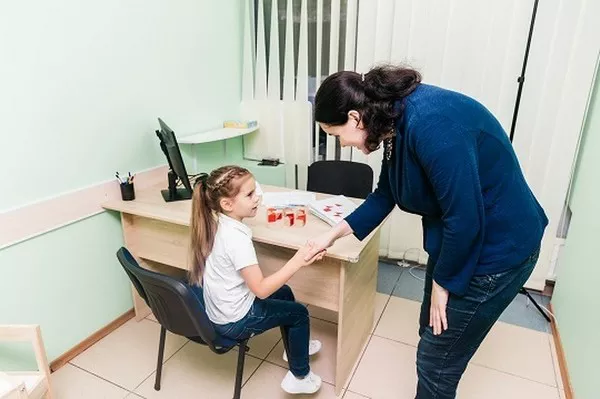Friendship is a vital aspect of human connection, providing support, companionship, and a sense of belonging. However, when faced with depression, maintaining friendships can become a challenging endeavor. The impact of depression on one’s mood, energy, and overall well-being can strain social interactions. In this article, we will explore strategies for navigating the complexities of maintaining friendships while dealing with depression, highlighting the importance of communication, self-care, and mutual understanding.
Understanding Depression’s Impact on Friendship
Depression can manifest in various ways, impacting an individual’s ability to engage in social interactions and maintain friendships. Feelings of isolation, fatigue, and a lack of interest in activities that were once enjoyable are common symptoms of depression. Understanding how depression affects your thoughts and behaviors is crucial for both self-awareness and effectively communicating with friends about the challenges you may be facing. Depression does not define your worth or the value of your friendships, but acknowledging its presence is the first step toward managing its impact.
Open Communication: Friendship’s Lifeline
Communication is the lifeline of any friendship, and when facing depression, open and honest communication becomes even more crucial. Share your feelings and experiences with trusted friends, explaining the challenges you are navigating. Friendship’s lifeline involves expressing your needs, whether it’s a desire for understanding, patience, or simply someone to listen. Friends who are aware of your struggles can offer support and adjust their expectations, fostering a compassionate and empathetic connection.
Setting Realistic Expectations: Friendship in Flux
Depression can create fluctuations in mood, energy levels, and overall functioning. Setting realistic expectations for yourself and your friendships is essential during such times. Friendship in flux acknowledges that your capacity for social interaction may vary, and that’s okay. Communicate openly with your friends about your current state, allowing them to understand and adjust their expectations accordingly. Recognizing and accepting your limitations is a crucial aspect of maintaining friendships while navigating depression.
Prioritizing Self-Care: Friendship’s Foundation
Self-care serves as the foundation for maintaining friendships when dealing with depression. Prioritize activities that contribute to your well-being, whether it’s getting enough sleep, engaging in physical exercise, or practicing mindfulness. Friendship’s foundation is built on your ability to care for yourself, allowing you to bring a more balanced and positive energy to your interactions. Communicate your self-care needs to your friends, helping them understand the importance of these practices in managing depression.
Scheduling Small Interactions: Friendship’s Micro Moments
Depression can make even small social interactions feel overwhelming. Recognizing this, consider scheduling micro moments of connection with friends. Friendship’s micro moments involve brief, low-pressure interactions that allow you to stay connected without feeling overwhelmed. Whether it’s a short phone call, a quick text, or grabbing a coffee together, these small interactions can help maintain the connection while accommodating the challenges that depression may present.
See Also: Is friendship more important than love?
Expressing Gratitude: Friendship’s Uplift
In the midst of depression, expressing gratitude for the support and understanding of your friends becomes a powerful tool. Friendship’s uplift involves acknowledging and appreciating the efforts your friends make to stay connected and offer support. A simple “thank you” can go a long way in reinforcing the bonds of friendship and creating a positive atmosphere within your social circle. Gratitude is a mutual exchange that uplifts both you and your friends.
Establishing Boundaries: Friendship’s Guardrails
Setting and communicating boundaries is crucial when managing friendships while dealing with depression. Friendship’s guardrails involve clearly defining what you can and cannot handle at a given time. It is okay to say no to social invitations if you need time for self-care or if socializing feels overwhelming. Establishing boundaries allows you to prioritize your mental health while maintaining open and honest communication with your friends about your needs.
Educating Friends About Depression: Friendship’s Insight
Many individuals may not fully understand the intricacies of depression and its impact on daily life. Friendship’s insight involves educating your friends about depression, helping them gain a better understanding of the challenges you are facing. Share resources, articles, or personal experiences to provide insight into the nature of depression. Increasing awareness fosters empathy and equips friends with the knowledge to offer meaningful support while respecting your journey.
Creating a Support System: Friendship’s Network
Building a support system within your circle of friends can be instrumental in navigating depression. Identify friends who are particularly understanding, empathetic, and willing to offer support. Friendship’s network involves diversifying your sources of support, recognizing that different friends may play unique roles in providing comfort, companionship, or simply a listening ear. Cultivating a robust support system enhances your ability to maintain connections even during challenging times.
Encouraging Open Dialogue: Friendship’s Exchange
Depression can create barriers to effective communication, but encouraging open dialogue with your friends is essential. Friendship’s exchange involves fostering an environment where you feel comfortable sharing your thoughts and feelings, even if they are difficult to articulate. Let your friends know how they can support you, whether it’s through active listening, checking in regularly, or simply being a comforting presence. Open dialogue strengthens the bonds of friendship and creates a foundation for mutual understanding.
Seeking Professional Help: Friendship’s Compass
If depression becomes overwhelming, seeking professional help is a vital step in maintaining friendships and prioritizing your mental health. A mental health professional can provide guidance, support, and therapeutic interventions to help you navigate the challenges of depression. Friendship’s compass extends to the understanding and support of friends who recognize the importance of seeking professional help when needed. It is a proactive and empowering step toward healing.
Engaging in Shared Activities: Friendship’s Connection
Maintaining friendships while dealing with depression can be facilitated through engaging in shared activities. Friendship’s connection involves participating in activities that bring joy and provide shared experiences. Whether it’s watching a movie, taking a walk, or pursuing a hobby together, shared activities create positive memories and reinforce the bonds of friendship. The connection forged through enjoyable experiences contributes to the resilience of your friendships.
Acknowledging Your Friends’ Needs: Friendship’s Reciprocity
While navigating depression, it’s essential to acknowledge the needs of your friends and the impact your mental health may have on them. Friendship’s reciprocity involves recognizing that your friends may also experience challenges as they support you. Be mindful of their well-being, express gratitude for their efforts, and encourage open communication about how they are coping. Acknowledging the reciprocal nature of friendships fosters a sense of mutual care and understanding.
Celebrating Milestones Together: Friendship’s Joy
Amidst the challenges of depression, celebrating milestones together with friends can bring moments of joy and connection. Friendship’s joy involves acknowledging and celebrating achievements, birthdays, or any positive events within the group. These celebrations create a positive atmosphere and contribute to the overall well-being of the friendship. Recognizing and sharing in each other’s successes enhances the resilience of friendships during challenging times.
Embracing Flexibility: Friendship’s Adaptability
Flexibility is key when maintaining friendships while dealing with depression. Friendship’s adaptability involves embracing the ebb and flow of interactions, understanding that some days may be more challenging than others. Be open about your needs and limitations, and appreciate friends who can adapt to the changing dynamics of the friendship. Embracing flexibility allows for a more understanding and supportive social environment.
Reflecting on Progress: Friendship’s Growth
Periodically reflecting on the progress of your friendships and your personal growth is a valuable practice. Friendship’s growth involves recognizing the strides you’ve made in managing depression, as well as acknowledging the resilience of your friendships. Reflecting on progress fosters a sense of achievement and reinforces the importance of maintaining connections even during challenging times. It is a positive affirmation of the strength and endurance of both yourself and your friendships.
Conclusion
Maintaining friendships while dealing with depression is a nuanced journey that requires open communication, self-care, and understanding from both parties. Depression does not diminish the value of friendships; instead, it emphasizes the importance of compassion, empathy, and mutual support. By implementing strategies such as setting realistic expectations, encouraging open dialogue, and building a strong support system, individuals can navigate the complexities of depression while preserving and strengthening their connections with friends. Ultimately, friendship serves as a source of comfort and resilience, contributing to the overall well-being of individuals facing the challenges of mental health.
Related topics:





























